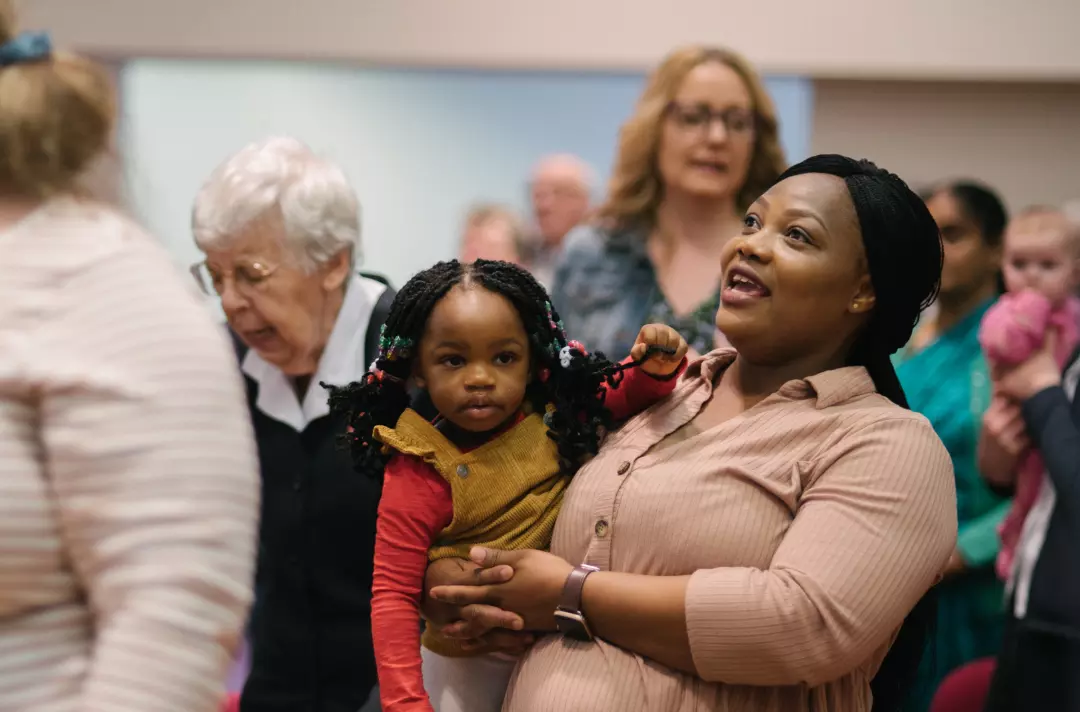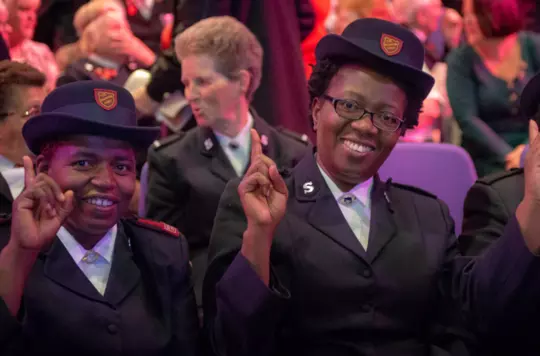20 April 2023
Believing in belonging: What is the Membership Working Group?
Lieut-Colonel Drew McCombe
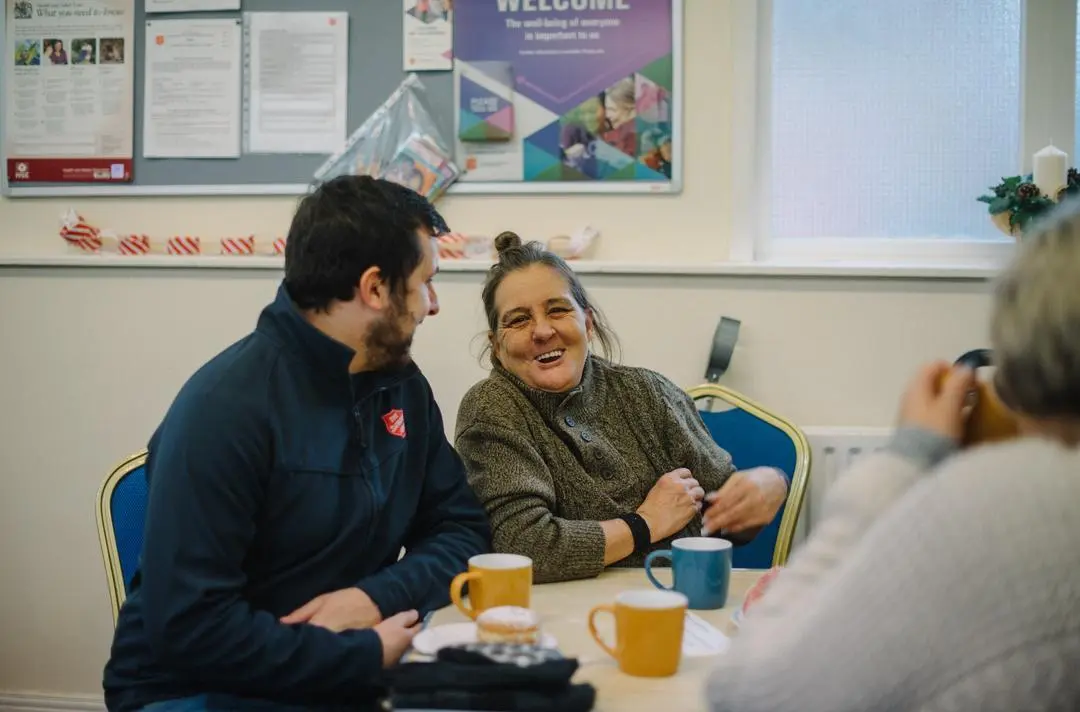
Secretary for Mission Lieut-Colonel Drew McCombe tells Salvationist about the territory’s new research into membership.
What does ‘membership’ mean to you?
It’s about belonging, participation and commitment. Not just feeling that you belong, but having as full participation within our Movement as possible. That is why territorial leadership has formed a Membership Working Group: to have an open, frank, mature conversation about Salvation Army membership in this territory.
What does the Membership Working Group want to find out?
We have a sincere desire to understand our own people and people who are not yet part of our Movement. Part of what the group is exploring is the question: What does it mean to enter the Kingdom of God, and what does that mean for people entering the Kingdom in today’s society and culture?
What are the positives that are bringing people to formal membership? What are some of the barriers? How do we ensure as full participation as possible? For example, across the territory in the past 20 years, we’ve found an opening up to open sections in some places, which has enabled participation without necessarily signing up to formal membership. I do not want to lessen the emphasis on commitment. Participation is about playing your part. To play your part, there is an element of commitment. I think we can encourage that in all sorts of ways.
What are formal membership numbers like?
They are, and have been, declining for years. The numbers are no secret – they’re published in the year book. Pastoral care councils and divisional leaders do an annual update on corps membership, which feeds into divisional and territorial figures. If you project that into the future, it is concerning, but I want to be clear that this isn’t about numbers. I think we are actually far bigger as a Movement, in terms of the people gathering as part of the Army, than the figures suggest. In my experience, there are many followers of Jesus who are not adherents, junior soldiers or soldiers. There are even people stepping into elements of leadership who are not formally recognised.
Is there a wider social trend in terms of how people view membership?
Some answers we get will possibly reflect today’s culture and society, one that’s less formal, less membership-driven. Some people would probably say, ‘I belong already. Why do I need to sign a bit of paper?’
Have you always been a member of the Army?
My parents were members of the Army. My dad was converted in the Plymouth Brethren and my mum came from the Baptist Church. I became a soldier before I really understood it. There was a period when I rebelled against it, then I discovered Jesus as my personal Saviour and Lord and that is what it is really all about. I wasn’t someone with no previous connection to the Army.
Why is this something you’re passionate about?
Belonging, participation and commitment are central to my faith. We’re not called to be isolated Christians; we’re called to be together. My relationship with God is not just vertical. God, to me. It is also horizontal to others. Love God, love others. That is how I understand the body of Christ. It’s about being valued, being recognised, being seen as a resource to each other. That kind of every-member ministry is a concept the body of Christ speaks of.
Do you worry that some people don’t feel valued or recognised?
That’s certainly one of the things we want to find out. Nobody would want people not to feel that they belonged or are valued. In the Army we have a ‘whosoever will’ approach generally, so we try not to make any discrimination between anybody. It pains me to think that someone would feel any barrier to belonging, whatever a wider conversation through IHQ with the rest of the world, for example Canada, Australia and New Zealand.
We’re not coming with a proposal or theory or anything like that. There is no end decision or route in mind. Discernment and wisdom come first, before you jump to any decision. I think that is as true for our territory as it would be for the international Salvation Army.
Why have this conversation?
We’re not starting this conversation. We’re joining a conversation that’s already happening. We need to listen to where people are coming from.
There are so many convergent issues around the whole topic of membership. For example, membership speaks into leadership, locally in terms of volunteer leadership, but also officers, envoys, pioneers, all aspects of leadership.
There are also multiple conversations going on around race, sexuality and disability inclusion, which local leaders are meeting every day in the people they come across in their communities. If we are to be as inclusive as we can be, we need to have a look at these issues.
Will everyone be able to speak into the conversation?
I’m conscious this conversation will evoke strong emotions in everyone, from people of a more conservative view to people of a more liberal view. I think we need to try and be respectful of hearing everyone’s voices. In having this conversation, everyone needs to be at the table and have their voice listened to.
Through listening to all these viewpoints, and through the exploration that we will do, we will try and sense under God and the wisdom of our leaders where that takes us. At the end of the day, whatever the outcome, we will be better for listening and having had the conversation.
How will you capture a wide range of views?
I think we have to mix up how we do it. Once we finalise the research questions, we’ll establish a methodology. There may be a survey aspect, but we are probably looking at something more conversational. For example, advisory groups to have division-wide conversations or focus groups on a local level. We’ll look at multiple options, including an email address for the working group.
What work has been done so far?
The working group has only just started to meet. It’s early days and more will be said as we develop the work. At this stage, we would like to invite everyone to save the date for an event that will take place on Saturday 1 – Sunday 3 March 2024.*
*Updated 30 August 2023: The event was originally planned for October 2023.
What can you tell us about the event in October?
The working title is Belonging and Believing: The Big Conversation. It will be an inclusive opportunity for people to engage with what it means to be a member of The Salvation Army and what Scripture says about the Kingdom. We’re also looking at the possibility of recording some of the sessions so that people can engage with it in their own settings and as many hearts and minds as possible are part of the conversation.
What excites you about membership today?
I’m a fan of people finding their place, using whatever gifts and skills they have in the body of Christ. The Army is flourishing in different local contexts, and I want to have conversations to understand why. For example, we will look at what we can learn from the Armáda Spásy corps, because something exciting is going on there. We also want to find out about other territories. In places such as India and Pakistan, the Army is really growing in terms of formal memberships. What is going on there?
This is an exciting opportunity to look at how we affirm membership and release the potential in people. How can we reimagine what radical, life-giving discipleship looks like? Something that’s attractive, vital, inspiring and makes a difference.
- For more information, email belonging@salvationarmy.org.uk
Written by
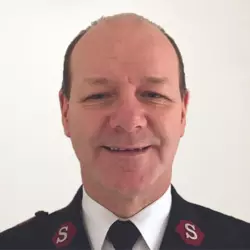
Lieut-Colonel Drew McCombe
Secretary for Mission
Discover more
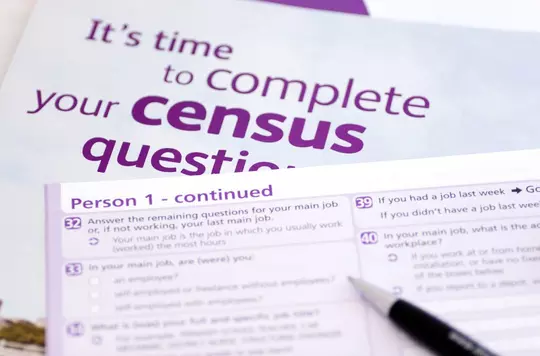
Lieut-Colonel Drew McCombe argues why the falling number of Christians signals an opportunity to make a real difference.
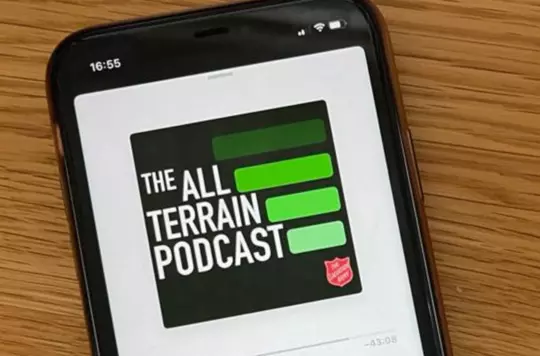
Host Matt White is joined by Lieut-Colonel Drew McCombe for this month's hypothetical hike.

Captain Tom Dunham considers the spiritual rhythms of soldiership.
